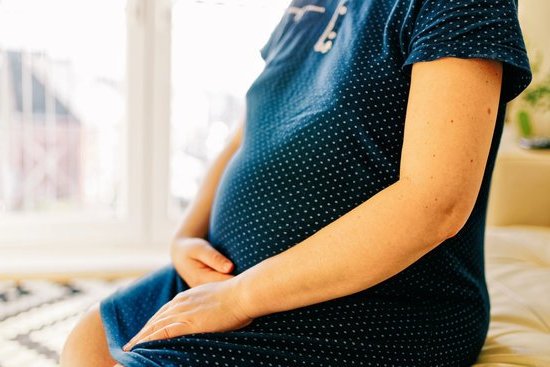What are possible effects of poor nutrition during pregnancy? Ensuring proper nutrition during pregnancy is crucial for the health and development of both the mother and the growing fetus. The foods a mother consumes have a direct impact on her own well-being, as well as the long-term health and development of her child. In this article, we will explore the potential effects of poor nutrition during pregnancy on both the mother and the unborn child.
During pregnancy, a woman’s nutritional needs increase to support the growth and development of the fetus. Poor nutrition during this critical time can have a range of negative effects on both the mother and the baby. From impacting fetal development to increasing the risk of complications during birth, it is essential to understand how important proper nutrition is throughout pregnancy.
In this article, we will delve into how poor nutrition can affect the development of the fetus, potential long-term effects on the child’s health and development, as well as ways to improve nutrition during pregnancy. Additionally, we will address barriers that some women face in accessing nutritious food during pregnancy and how healthcare providers play a critical role in supporting proper nutrition for expectant mothers.
The Impact of Poor Nutrition on the Mother’s Health During Pregnancy
During pregnancy, a woman’s body goes through various physical and hormonal changes to support the development of the fetus. Proper nutrition is essential during this time to ensure the health and well-being of both the mother and the growing baby. However, poor nutrition during pregnancy can have detrimental effects on the mother’s health.
One possible effect of poor nutrition during pregnancy is an increased risk of anemia. Anemia occurs when there is a lack of healthy red blood cells to carry oxygen to the body’s tissues.
This can lead to feelings of fatigue, weakness, and dizziness, affecting the mother’s overall well-being. Additionally, inadequate nutrition during pregnancy can also contribute to maternal complications such as preeclampsia and gestational diabetes, which can pose significant risks to both the mother and the developing baby.
Furthermore, poor nutrition during pregnancy can hinder the mother’s ability to gain a healthy amount of weight. Insufficient weight gain during pregnancy has been linked to adverse outcomes such as preterm birth and low birth weight in infants. This underscores the importance of adequate nutrition for expectant mothers in order to support their own health as well as the optimal growth and development of their babies.
| Possible Effects | Details |
|---|---|
| Anemia | Lack of healthy red blood cells leading to fatigue, weakness, and dizziness |
| Maternal Complications | Preeclampsia, gestational diabetes |
| Inadequate Weight Gain | Linked with preterm birth and low birth weight in infants |
How Poor Nutrition Can Affect the Development of the Fetus
During pregnancy, the fetus relies entirely on the mother’s diet for nutrients necessary for growth and development. Poor nutrition during pregnancy can have significant effects on the development of the fetus, leading to potential long-term consequences for the child’s health and well-being.
Impact on Fetal Growth and Development
A poor diet lacking in essential nutrients such as folic acid, iron, protein, and calcium can result in inadequate fetal growth and development. This can lead to low birth weight, which is associated with an increased risk of infant mortality and impaired cognitive development. Furthermore, a lack of vital nutrients can lead to developmental delays and an increased risk of birth defects.
Increased Risk of Chronic Diseases
Research has shown that maternal malnutrition during pregnancy is linked to an increased risk of chronic diseases in offspring later in life. Children born to mothers with poor nutrition during pregnancy may be more susceptible to conditions such as obesity, diabetes, cardiovascular disease, and even mental health disorders.
Cognitive Development and Behavior
Poor maternal nutrition during pregnancy has also been associated with adverse effects on cognitive development and behavior in children. A lack of essential nutrients can impact brain development, potentially leading to learning disabilities, lower IQ scores, and behavioral issues. It is crucial for expectant mothers to consume a well-balanced diet rich in essential nutrients to support the optimal development of the fetus.
Potential Long-Term Effects on the Child’s Health and Development
Poor nutrition during pregnancy can have long-term effects on the health and development of the child.
Impaired Brain Development
Adequate nutrition is crucial for the development of the baby’s brain. A lack of essential nutrients such as omega-3 fatty acids, iron, and iodine during pregnancy can lead to impaired cognitive development in the child. This may result in learning difficulties, lower IQ, and behavioral issues later in life.
Increased Risk of Chronic Diseases
Children born to mothers who experienced poor nutrition during pregnancy are at a higher risk of developing chronic diseases such as obesity, cardiovascular disease, type 2 diabetes, and high blood pressure. This has been attributed to the concept of fetal programming – where adverse conditions during fetal development can lead to an increased susceptibility to chronic diseases later in life.
Impact on Immune System
Nutritional deficiencies during pregnancy can also weaken the child’s immune system, making them more susceptible to infections and illnesses throughout their life. This highlights the importance of ensuring that pregnant women receive adequate amounts of key nutrients such as vitamin C, vitamin D, and zinc to support their child’s immune system development.
The Link Between Poor Nutrition and Increased Risk of Complications During Pregnancy and Birth
During pregnancy, the mother’s nutrition plays a critical role in the overall health and development of the baby. Poor nutrition during this crucial stage can lead to various complications for both the mother and the baby. Here are some possible effects of poor nutrition during pregnancy:
- Low birth weight: Inadequate intake of essential nutrients such as protein, vitamins, and minerals can result in low birth weight for the baby. This can increase the risk of various health problems for the infant both in the short and long term.
- Preterm birth: Poor nutrition during pregnancy has been linked to an increased risk of preterm labor, which can lead to premature birth. Premature babies may face a range of health issues and developmental challenges.
- Increased risk of birth defects: Certain nutrients play a key role in preventing birth defects such as neural tube defects or cleft palate. A lack of these nutrients in the mother’s diet can raise the risk of such abnormalities in the developing fetus.
It is important for expecting mothers to understand the potential consequences of poor nutrition during pregnancy and take steps to address this issue through informed choices and support from healthcare providers.
Ways to Improve Nutrition During Pregnancy
During pregnancy, it is crucial for women to consume a well-balanced diet to support the growth and development of their developing baby. However, many women struggle with maintaining proper nutrition during this time due to various factors such as food aversions, cravings, or limited access to healthy foods. Nevertheless, there are several ways in which pregnant women can improve their nutrition for a healthier pregnancy.
One effective way to improve nutrition during pregnancy is to focus on consuming nutrient-dense foods. This includes incorporating plenty of fruits, vegetables, whole grains, lean proteins, and healthy fats into the diet. These foods provide essential vitamins and minerals that are vital for the health of both the mother and the developing baby. Additionally, pregnant women should aim to stay hydrated by drinking an adequate amount of water each day.
Another important aspect of improving nutrition during pregnancy is to make small but significant changes in eating habits. This can include reducing the consumption of processed foods high in sugar, salt, and unhealthy fats. Instead, pregnant women should strive to cook more meals at home using fresh ingredients and limiting their intake of sugary beverages and snacks. By making these simple adjustments, they can significantly enhance their overall nutrition during pregnancy.
Furthermore, seeking guidance from healthcare providers or registered dietitians can also help pregnant women make informed decisions about their dietary choices. These professionals can provide personalized recommendations based on individual nutritional needs and offer valuable support in addressing any challenges related to maintaining a healthy diet during pregnancy.
Addressing Barriers to Accessing Nutritious Food During Pregnancy
Accessing nutritious food during pregnancy is crucial for the health of both the mother and the developing fetus. However, many women face barriers that make it difficult to obtain the necessary nutrients for a healthy pregnancy. Some of these barriers include financial constraints, lack of transportation to grocery stores, limited availability of fresh produce in certain areas, and inadequate knowledge about proper nutrition during pregnancy.
To address these barriers, pregnant women can consider the following options:
- Utilize government assistance programs such as WIC (Women, Infants, and Children) that provide vouchers for nutritious foods like fruits, vegetables, whole grains, and lean proteins.
- Explore local food banks and pantries that offer free or low-cost nutritious food options for pregnant women.
- Research community resources such as farmers’ markets, community gardens, and food cooperatives that may provide access to affordable fresh produce.
- Take advantage of home delivery services for groceries and meal kits to eliminate transportation challenges.
It’s essential for pregnant women to seek out resources in their communities that can help them overcome barriers to accessing nutritious food. By taking proactive steps to address these obstacles, pregnant women can better ensure they are getting the vital nutrients needed for a healthy pregnancy. Addressing these barriers not only benefits the mother but also supports optimal fetal development.
In addition to seeking out community resources, pregnant women can also educate themselves about proper nutrition during pregnancy through classes, online resources, and support groups. This knowledge can empower them to make informed choices about their diet and take control of their nutritional intake during this critical time.
Seeking Professional Help
In conclusion, poor nutrition during pregnancy can have a significant impact on both the mother and the developing fetus. The effects of inadequate nutrition can lead to a range of health issues for the mother, including anemia, preeclampsia, and gestational diabetes. These conditions not only affect the mother’s well-being during pregnancy but can also have long-term consequences for her health.
Additionally, poor nutrition can also hinder the proper development of the fetus, leading to low birth weight, preterm birth, and an increased risk of chronic diseases later in life. It is essential for expectant mothers to understand the importance of maintaining a balanced and nutritious diet throughout their pregnancy to support the health and growth of their baby.
Healthcare providers play a crucial role in supporting proper nutrition during pregnancy by offering guidance on dietary needs, providing nutritional counseling, and addressing any barriers to accessing nutritious food. By working closely with healthcare professionals, expectant mothers can ensure that they are making informed choices to optimize their nutrition during this critical time. Ultimately, prioritizing good nutrition during pregnancy is vital for the well-being of both the mother and child.
Frequently Asked Questions
What Are the Effects of Poor Nutrition in Pregnancy?
Poor nutrition during pregnancy can have significant effects on both the mother and the developing baby. It can lead to an increased risk of complications such as preterm birth, low birth weight, and even birth defects. Inadequate intake of essential nutrients like folic acid, iron, and calcium can also impact the baby’s long-term health and development.
What Happens if You Don T Get Enough Nutrients During Pregnancy?
If a pregnant woman doesn’t get enough nutrients, it can result in serious consequences for both her and the baby. Maternal malnutrition can lead to an increased risk of anemia, weak immune system, fatigue, and even preeclampsia.
For the baby, insufficient nutrient intake can affect their growth and development, increasing the risk of developmental delays and chronic health conditions later in life.
What Happens if You Eat Poorly During Pregnancy?
Eating poorly during pregnancy can have various negative implications for both the mother and the baby. It can lead to excessive weight gain or inadequate weight gain, gestational diabetes, high blood pressure, and an increased risk of delivery complications.
Additionally, poor maternal diet may influence the baby’s future food preferences and predispose them to health issues such as obesity or cardiovascular disease.

Welcome to my fertility blog. This is a space where I will be sharing my experiences as I navigate through the world of fertility treatments, as well as provide information and resources about fertility and pregnancy.





